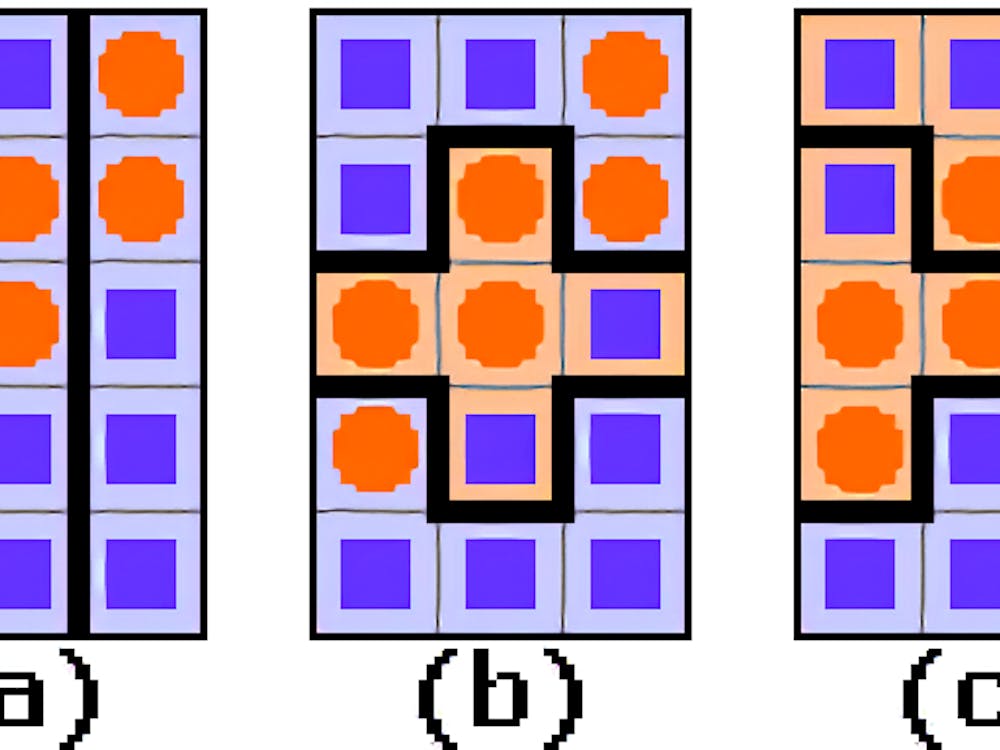A year ago, an article ran in The News-Letter which discussed the topic of covered grades. The article indicated that the Academic Affairs subcommittee of the Academic Council had recently approved a motion to eliminate the first semester grading policy, which indicates only a satisfactory or unsatisfactory performance in the course and does not calculate grades received in first semester classes into cumulative grade point average (GPA). This recommendation, if approved by President Ron Daniels, would take effect in the fall of 2014.
I’ve been meaning to write this article for a while, because I think it is one of the most important questions that shape the Hopkins academic experience. The policy of covered grades should not be eliminated in 2014, or ever. There are myriad reasons why this is the case, and I won’t be able to explore them all in the space of this article, but what follows are some of the arguments I consider to be most important.
Among the reasons why covered grades are a good idea is an obvious fact: adjusting to college is difficult. Most students are unfamiliar with the challenges of living away from home, allocating their time to accommodate a college workload, establishing a circle of friends, and, in the case of international students, familiarizing themselves with a foreign culture. In light of these challenges, it is beneficial to give students a “grace period” during which they can fully adjust themselves to the rigors of college life without worrying as much about their GPA.
Covered grades also promote academic exploration. Another News-Letter article, published last spring, gives voice to what many students who experienced covered grades found to be true: decreased academic pressure allows students to enroll in classes that they ordinarily would not take for fear of academic reprisals. Academic exploration is a good thing, because it allows students who may have never heard of departments like Writing Seminars or biophysics to discover topics they enjoy. When students discover subjects they enjoy, they are more likely to apply themselves, achieve highly and choose not to transfer to a school with different academic offerings. The maximization of academic exploration is especially important for students during their first semester than in subsequent ones. Therefore, it makes sense to provide risk-free opportunities for academic exploration to students during their first semester.
But what about “slacking?” In last spring’s News-Letter article, William Conley, Dean of Enrollment and Academic Services, asserted “I … think that students aren’t applying the study skills their first semester that they would otherwise.” Specifically, opponents of covered grades point to the trend that Hopkins freshmen generally have lower GPAs than their peers in other classes. However, pointing to a statistical trend is not sufficient to establish slacking as a cause. Moreover, studies of GPA trends at schools across the country have shown that students universally tend to receive higher GPAs during their sophomore year than their freshman year, and continue to improve in each subsequent year. That the trend exists universally suggests that adjustment factors, decreasing class sizes for upper-level subjects, or other structural factors are the reasons freshmen traditionally perform poorly, rather than covered grades. The important takeaway is that, if the trend exists nationwide at schools that don’t have a policy of covered grades, then eliminating covered grades here won’t reverse the trend and send freshman GPAs skyrocketing.
Another issue Conley addressed in last spring’s article is the notion that Hopkins deflates grades relative to other top-tier universities with which Hopkins students compete in the job market and in the admissions departments for graduate schools. If Hopkins students do, in fact, experience grade deflation relative to our peers, then covering first semester grades would do something to remedy this inequity, given that freshman year GPAs have been shown to be lower on average.
Conley downplays this concern, portrays it as an excuse for poor performance and, most bewilderingly, claims, “If you’re applying to medical school from here with a 3.2, it’s the same as a 3.2 from Harvard or virtually anywhere else. The numbers show it.” I am interested to know which numbers Conley is referring to here, since his statement leaves me wondering whether he actually knows what grade inflation is. His statement, which essentially compares the prestige of Harvard versus that of Hopkins, doesn’t actually address the problem of grade inflation: whether it is more difficult to earn a 3.2 at Hopkins than it is at Harvard.
The work of two prominent grade-inflation researchers, Stuart Rojstaczer and Christopher Healy, does address this problem, and their findings lean in favor of popular perceptions which say that Hopkins deflates grades relative to top-tier schools.
To use Conley’s example, they show that since 1990, the average cumulative GPA at Harvard has been a 3.30 or higher. In 2005, the most recent year in which Rojstaczer and Healy provide statistics, the average was a 3.45. Similar trends exist at Yale, Columbia, Dartmouth,and Stanford. Hopkins, by contrast, was reported to have a 3.23 average in the same year. And the outlook hasn’t improved much since; statistics available on the website for the Office of Student Life indicate that in 2011, the average Hopkins GPA was a 3.27; still .03 below Harvard in 1990. I would be surprised and disappointed if Conley was inclined to suggest that this discrepancy exists simply because students here aren’t as smart or don’t work as hard as those at Ivy League schools.
Eliminating covered grades would almost certainly put Hopkins students at an even larger disadvantage to graduates of Ivy League schools, something that seems fundamentally unfair. But even if the administration doesn’t care about fairness, this trend has implications for something they should care about: student yields.
Student yields measure the percentage of students accepted to a university who ultimately decide to attend. In recent years, Hopkins’s yield has increased, and the first-semester pass/fail grade system is likely a part of that. Taken objectively, the idea is actually a remarkably good one as a marketing effort aimed at students who have many impressive schools to choose between. Eliminate it, and you may get some marginal increase in effort from the first-semester freshmen that do choose to come here (even though national trends suggest otherwise), but you’ll also lose something: a lot of bright students who would rather get a Harvard education anyway.
John Corbett is a sophomore Economics and International Studies double major from Portsmouth, R.I. He is a staff writer for the News-Letter.




